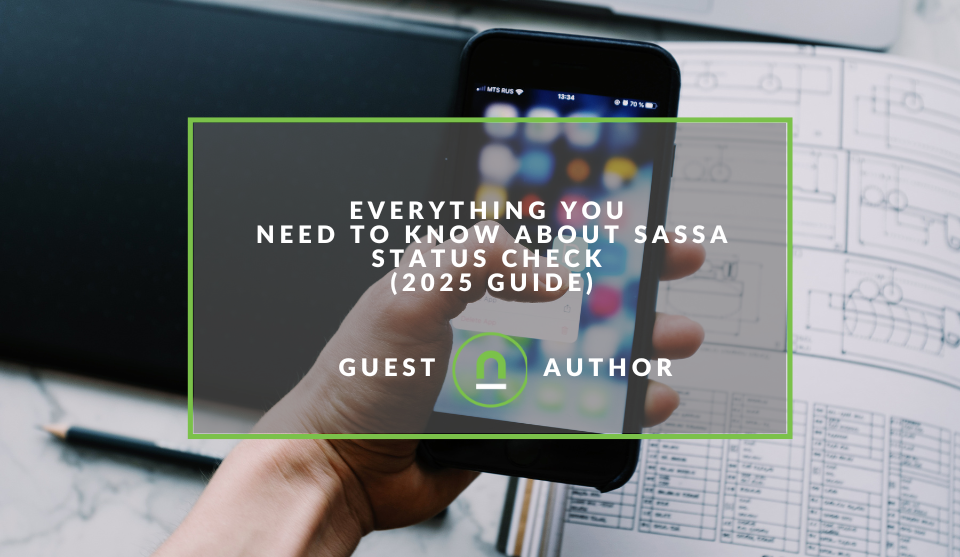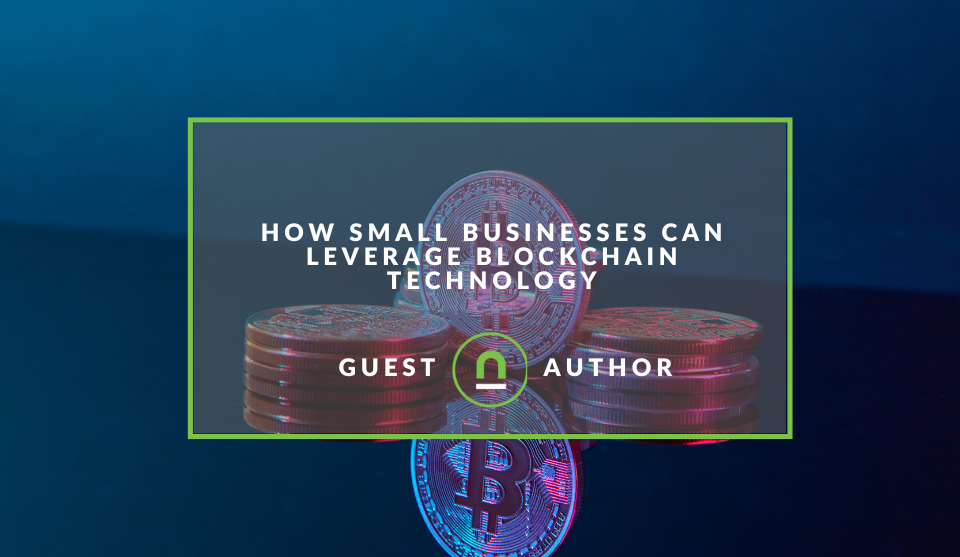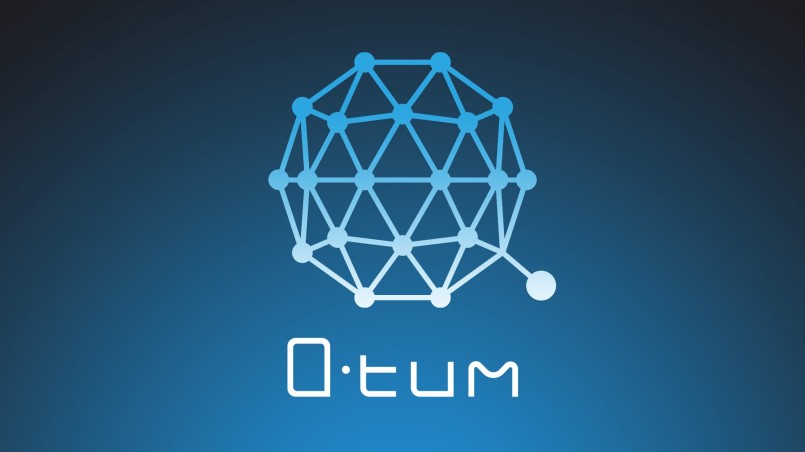Recent posts

Money Talks
Everything You Need to Know About SASSA Status Check
13 April 2025

Mind, Body & Soul
The Genetic Diversity of Cannabis Seeds
12 April 2025

Money Talks
How Small Businesses Can Leverage Blockchain Technology
02 April 2025

Industry Experts
Mastering Personalization in Digital Marketing
31 March 2025
Popular posts
Extravaganza
Trending Music Hashtags To Get Your Posts Noticed
24 August 2018
Geek Chic
How To Fix iPhone/iPad Only Charging In Certain Positions
05 July 2020
Extravaganza
Trending Wedding Hashtags To Get Your Posts Noticed
18 September 2018
Money Talks
How To Find Coupons & Vouchers Online In South Africa
28 March 2019
What is Qtum Coin?
28 December 2017 | 0 comments | Posted by Che Kohler in Money Talks
QTUM (pronounced “quantum”) is a Singapore-based Cryptocurrency and blockchain technology that bridges the gap between two of the most popular coins in the industry. Qtum uses the Ethereum’s smart contracts concept and places it on top of Bitcoin’s stable blockchain while using proof of stake rather than proof of work for verification.
Qtum has cherry-picked strengths from different currencies and combined them into one, and by doing so, QTUM hopes to increase the range and interoperability of smart contract applications, especially for business and institutional purposes.
In addition, QTUM will implement tools, templates, and other plug-and-play smart contract options to make it easier for businesses to build and execute smart contracts through its network.
What is Qtum (QTUM)?
Qtum is a hybrid blockchain application platform with its value primarily in the unique combination of core technology. Qtum combines a fork of bitcoin core, an Account Abstraction Layer allowing for multiple Virtual Machines including the Ethereum Virtual Machine (EVM) and Proof-of-Stake consensus aimed at tackling industry use cases.
They believe this will allow Smart Contracts and Decentralized Applications to run on a familiar foundation while offering a robust environment for developers.
Why should you pay attention to Qtum?
Qtum offers interoperability
The idea behind QTUM is making smart contracts easier and more secure while offering interoperability with leading cryptocurrencies such as Bitcoin and Ethereum.
The foundation for QTUM’s code is Bitcoin’s blockchain, but the QTUM developers have abstracted and added layers to the Bitcoin blockchain that allow the Ethereum virtual machine for smart contracts to run on top of Bitcoin.
As such, QTUM benefits from new developments in the Bitcoin and Ethereum communities, and smart contracts built on Ethereum can easily be ported over to QTUM as well. Many consider Qtum to be the top team coming out of China given their industry expertise and enterprise interest.
Account Abstract Layer (AAL)
The Account Abstract Layer serves as a point of contact between the Bitcoin protocol and the Ethereum Virtual Machine. Smart contracts that previously could not be executed in mobile applications or storage devices, would, in theory, be possible because of the Account Abstract Layer.
By stacking the AAL on top of the Bitcoin blockchain, a protocol of the Bitcoin network known as, “Simple Payment Verifications” (SPVs) can be accessed. The SPV protocol allows users to interact with a blockchain without having to download it. It is with the SPV protocol that Qtum uses to power their lite wallet, Go-Mobile.
Qtum uses DPOS
Qtum is similar to Lisk in that it utilises a Delegated Proof of Stake (DPOS) system to process its transactions. DPOS is the fastest, most efficient, most decentralized, and most flexible consensus model available in the cryptocurrency market thus far. DPOS leverages the power of stakeholder approval voting to resolve consensus issues in a fair and democratic way.
All network parameters, from fee schedules to block intervals and transaction sizes, can be tuned via elected delegates. Deterministic selection of block producers allows transactions to be confirmed in an average of just 1 second. Perhaps most importantly, the consensus protocol is designed to protect all participants against unwanted regulatory interference.
This eliminates the crazy miner race we've seen plaguing currencies like Bitcoin and Ethereum where miners try to outperform one another by building supernodes with improved processing power and essentially monopolizing the mining pools. This also reduces the amount of currency removed from circulation as miners tend to horde what they earn to drive up the price.
Compatibility
Qtum is compatible with existing Ethereum contracts as well as Bitcoin gateways and will maintain backwards-compatibility even if the system is updated.
What is Qtum being used for?
Qtum's goal is to to be the public blockchain for business. Development efforts will allow them to market the platform to various industries and apply it to Mobile Telecommunications, Counterfeit Protection, Finance, Industrial Logistics (shipping, warranty, etc.), and Manufacturing.
Can you mine Qtum?
While Qtum may be a decentralised platform, it does not rely on the proof of work concept for approving transactions. Qtum can’t mine Qtum, but instead, you can earn tokens through trading. Qtum uses a DPoS (Delegated Proof-of-Stake Consensus) to confirm transactions with 1% yearly inflation. Meaning a Qtum user will get a share of the 1 million new token
Can you earn Qtum?
Trading
Since Qtum can’t be mined Qtum users have to look at alternative means to earn this digital currency. Users can earn tokens through trading on exchanges and take advantage of market fluctuations.
Staking
Cryptocurrencies that use proof of consensus like Qtum offer users the ability to earn coins by staking. Steaking is done by setting up a native Qtum wallet and adding Qtum to it and having the wallet run as a verification node of sorts. Each transaction sent to a QTUM wallet takes 500 blocks (or confirmations) to “mature” and start staking. The network weight is the total number of staking QTUM. This weight determines the probability 1 QTUM will mine the next block; the larger the weight, the lower the probability.
Setting up Qtum staking
Staking QTUM is incredibly simple in concept This is all you need to do (However the setup process is quite taxing and technical):
- Send QTUM to
wallet - Wait for 500 blocks transaction to mature and start staking
- Keep wallet running
Returns on staking
For each block generated on the Qtum blockchain (one block every 2 to 3 minutes), a 4 QTUM staking reward will be given to a Qtum network wallet/node that is staking coins. There is no minimum amount of QTUM coins that you need to stake, but the likelihood of receiving the staking reward depends on how many QTUM coins your wallet/node is staking (relative to the other wallets/nodes on the Qtum network).
Should you invest in Qtum?
Since the QTUM team is Asia-based most of their marketing efforts and outreach have appealed to Asian markets, specifically aimed at the Chinese market. Its popularity has grown in the last 6 months so much so that it been unofficially dubbed “the Chinese Ethereum.”
QTUM raised $1 million in private early-stage funding for the project from 11 angel investors that helped build the testnet and initial implementation of the idea. Subsequently once deployed to the blockchain, in March 2017, QTUM completed a crowdsale that raised $15.6 million in just over 5 days.
After an initial crowd sale in March of 2017, QTUM’s main net went live in mid-September, 2017 and since then the cryptocurrency has shot up to the 16th most valuable cryptocurrency by market cap, according to CoinMarketCap. In less than a year Qtum has grown to an overall valuation of $1.1 billion, and with interest growing in the Far East it has huge potential to continue its upward curve in 2018.
QTUM has also retained advisors from PwC to help with regulatory compliance and accounting as they see their product being a business and corporate focused tool with the use of smart contracts, especially in Asia.
For more on Qtum check out their official website
CONTACT US
If you want to know more about cryptocurrency, don’t be shy we’re happy to assist. Simply contact us
Disclaimer: This article should not be taken as, and is not intended to provide any investment advice and is for educational purposes only. As of the time posting the writers may or may not have holdings in some of the coins or tokens they cover. Please conduct your own thorough research before investing in any cryptocurrency as all investments contain risk.
Tags: Cryptocurrency, blockchain
You might also like
The Role of Customer Service in Selecting a Forex Broker
29 March 2025
Posted by Cornelia Ekong in Money Talks
Discover why excellent customer service is crucial when choosing a Forex broker, and learn how to evaluate support quality before committing your cap...
Read moreHow Small Businesses Can Leverage Blockchain Technology
02 April 2025
Posted by Nicholas Tay in Money Talks
Unlock growth with blockchain! Discover how small businesses can use this tech for secure transactions, supply chain transparency and innovative solu...
Read more{{comment.sUserName}}
{{comment.iDayLastEdit}} day ago
{{comment.iDayLastEdit}} days ago
 {{blogcategory.sCategoryName}}
{{blogcategory.sCategoryName}}

